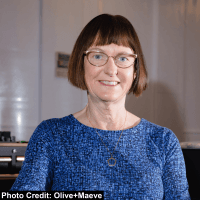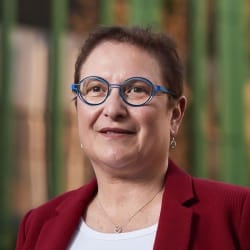
The Walter Burfitt Award in Medical and Veterinary Sciences and Technology
Today, the Walter Burfitt Award recognises distinguished research in any area of the Medical and Veterinary Sciences and Technologies, conducted mainly in New South Wales. Recipients may be resident in Australia or elsewhere. Prior to 2023, the focus of the award was on the pure or applied sciences.
The Walter Burfitt Award honours the life and work of Walter Charles Fitzmaurice Burfitt BA MB ChM BSc (1874 – 1956), an eminent Sydney surgeon, known for his deft and extremely rapid operations. In 1927, he and his wife donated money to establish the Walter Burfitt Prize for published research, and was first awarded in 1929. In 2004, funding for the prize was augmented by Dr Burfitt’s granddaughter, Dr Anne Thoeming. In 2023, Council designated it the Royal Society of New South Wales Walter Burfitt Award.
Educated University of Sydney (BA 1894, BSc 1898, MB, ChM 1900), he held a number of distinguished positions during his career: Resident medical officer, Royal Prince Alfred Hospital 1900; general practice, Glebe 1901-12; consultant surgeon, Macquarie Street 1912-40; surgeon and later gynaecologist, Lewisham Hospital 1901-40; medical officer, St Vincent’s Hospital from 1901 and at the diphtheria clinic of the Royal Alexandra Hospital for Children and visiting surgeon, Parramatta District and Western Suburbs hospitals. He retired in 1944. He was also a Founding Member of the Royal Australasian College of Surgeons 1928; Founder and sometime President of the Medical Benevolent Association of New South Wales; and Founder and sometime Chairman of the Hospital Almoners’ Guild.
Walter Burfitt Prize 2023
 The Walter Burfitt Prize in Medical and Veterinary Sciences and Technologies for 2023 has been awarded to Professor Maria Kavallarie AM FRSN FAHMS from the Children’s Cancer Institute of UNSW Sydney. Professor Kavallaris iis an exceptional cancer research leader, innovator, mentor, and role model who has made seminal discoveries on mechanisms of clinical drug resistance and tumour aggressiveness in childhood and adult cancers. Recognised as a world leader in cancer and microtubules, her discoveries have led to both patents and industry partnerships for the development of cancer therapeutics. Crucially, in complement to her exceptional research record, Professor Kavallaris has made outstanding contributions to NSW and Australia via highly influential medical research advocacy and mentoring the next generation of Australian cancer research leaders.
The Walter Burfitt Prize in Medical and Veterinary Sciences and Technologies for 2023 has been awarded to Professor Maria Kavallarie AM FRSN FAHMS from the Children’s Cancer Institute of UNSW Sydney. Professor Kavallaris iis an exceptional cancer research leader, innovator, mentor, and role model who has made seminal discoveries on mechanisms of clinical drug resistance and tumour aggressiveness in childhood and adult cancers. Recognised as a world leader in cancer and microtubules, her discoveries have led to both patents and industry partnerships for the development of cancer therapeutics. Crucially, in complement to her exceptional research record, Professor Kavallaris has made outstanding contributions to NSW and Australia via highly influential medical research advocacy and mentoring the next generation of Australian cancer research leaders.
Walter Burfitt Prize 2022
 The Walter Burfitt Prize for 2022 has been awarded to Distinguished Professor Susan M Scott FAA FEurASc from the Australian National University College of Science. Professor Scott is is an internationally recognised mathematical physicist who has made fundamental advances in our understanding of the fabric of space-time in general relativity, and in gravitational wave science. She has pioneered breakthrough results probing the existence and nature of space-time singularities, the global structure of space-time, and possible initial and final endstates for cosmological models representing our Universe. Professor Scott has also been a pioneer in the analysis of astrophysical signatures in gravitational wave experiments, including the searches for gravitational waves from asymmetric neutron stars and from inspiralling binary systems of black holes and neutron stars. She has played an important role in the development and promotion of gravitational research worldwide, and a leading role in Australia’s participation in the first direct detection of gravitational waves in 2015.
The Walter Burfitt Prize for 2022 has been awarded to Distinguished Professor Susan M Scott FAA FEurASc from the Australian National University College of Science. Professor Scott is is an internationally recognised mathematical physicist who has made fundamental advances in our understanding of the fabric of space-time in general relativity, and in gravitational wave science. She has pioneered breakthrough results probing the existence and nature of space-time singularities, the global structure of space-time, and possible initial and final endstates for cosmological models representing our Universe. Professor Scott has also been a pioneer in the analysis of astrophysical signatures in gravitational wave experiments, including the searches for gravitational waves from asymmetric neutron stars and from inspiralling binary systems of black holes and neutron stars. She has played an important role in the development and promotion of gravitational research worldwide, and a leading role in Australia’s participation in the first direct detection of gravitational waves in 2015.
Walter Burfitt Prize 2019
The Walter Burfitt Prize for 2019 has been awarded to Professor Kourosh Kalantar-Zadeh, of the School of Chemical Engineering at UNSW Sydney. Professor Kalantar-Zadeh is renowned for his research and development in the areas of liquid metals, atomically thin materials and ingestible sensors. He is a prolific researcher, recognised in 2018 by Clarivate Analytics as a “Highly Cited Researcher”. Over the past six years, his contributions have been frequently first-in-world and have set the agenda for research fields internationally in areas such as two-dimensional (2D) materials, liquid metals and microfluidics, and point-of-care diagnostic systems and sensors.
| Year & Recipient | Year & Recipient |
|---|---|
| 1929 N.D. Royle (Medicine) 1932 C.H. Kellaway (Medicine) 1935 V.A. Bailey (Physics) 1938 F.MN. Barnet (Medicine) 1941 F.W. Whitehouse (Geology) 1944 H.L. Kesteven (Medicine) 1947 J.C. Jaeger (Mathematics) 1950 D.F. Martyn (Ionospheric Geophysics) 1953 K.E. Bullen (Geophysics) 1956 J.C. Eccles (Medicine) 1959 F.J. Fenner (Microbiology) 1962 M.F. Glaessner (Palaeontology) 1965 C.A. Fleming (Micropalaeontology) 1968 L.E. Lyons (Chemistry) 1971 M.R. Lemberg (Medicine) | 1974 B.J. Robinson (Radiophysics) 1977 A. Kerr (Plant Pathology) 1980 H.A. Buchdahl (Physics) 1983 W.S. Hancock (Biochemistry) 1986 B.N. Figgis (Inorganic Chemistry) 1992 G. Paxinos (Psychology) 1995 R.M. Manchester (Astronomy) 1998 A.K. Burrell (Chemistry) 2001 M.W. Parker (Medicine) 2004 B.A. Neilan (Biology) 2007 M. Colless (Astronomy) 2010 R. Shine (Biology) 2013 M. Simmons (Physics) 2016 J. Gooding (Chemistry) 2019 K. Kalantar-Zadeh (Chemical Engineering) 2022 S. M. Scott (Theoretical Physics) 2023 Maria Kavallaris (Med. and Vet. Sciences) |